Constitution
Gun control – fact and fiction, part 1
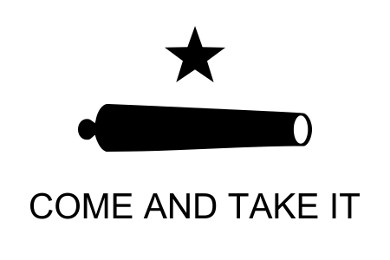
Gun control is the new Obamacare. The putative President plans to push as hard for it as he did for socialized medicine four years ago. (And he will use the same methods: line up like-minded rent-seekers to make the push.) Before that happens, all freedom-loving citizens need to remember why we have a Second Amendment. We also need to remember what Mark Twain said about statistics. Why? Because lying statisticians are lying to us again.
Why gun control is wrong
To answer that, we must ask why James Madison wrote the Second Amendment.
What the Second Amendment says
To review, that Amendment reads:
A well-regulated militia being necessary to the security of a free State, the right of the people to keep and bear arms shall not be infringed.
The grammar of that sentence confuses at least half the people who read it. (Long, stringy sentences do that sometimes.) The first part of that sentence is an absolute phrase. It sets out a fact that the rest of the sentence depends on. The real sense of that sentence is: A well-regulated militia is necessary to the security of a free State. For that reason, the right of the people to keep and bear arms shall not be infringed.
It does not mean, If a free State ever needs a well-regulated militia, then the people in that State shall have the right to keep and bear arms. It does not mean, Members of the militia shall have the full right to keep and bear arms. Even if it did, the Ninth Amendment says that cannot mean that no one else may keep or bear arms. The Ninth Amendment reads:
The enumeration in this Constitution of certain rights shall not be construed to deny or abridge others retained by the people.
Do the people retain the right to keep and bear arms? Yes. But gun control advocates never want to admit that.
Does the Second Amendment allow any sort of gun control?
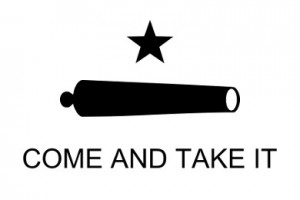
The battle flag of the defenders at Gonzales. This was their answer to Generalissimo Antonio Lopez de Santa Ana, who demanded a return of their cannon.
No, it does not.
This comment space has seen all the arguments that gun control advocates put forward. One of them is:
Surely the Second Amendment does not let a private citizen keep and bear all the arms a soldier might carry?
Yes, it does. Tim Young at PersonalLiberty.com talks about that. Someone wrote in, saying,
I don’t know about you, but I don’t feel very “free” knowing that my neighbor could be housing an AK-47 in his garage.
Mr. Young wrote back:
I do feel safer knowing that my neighbor could be housing an AK-47 in his garage. Why? Because I know most of my neighbors are honest, hardworking people who aren’t nutcases looking to shoot up schoolchildren.
That’s the key: most of one’s neighbors are peace-loving people. So if everyone had that sort of weapon, then the minute any of them started such a shooting spree, someone – it could be anyone around him – could and would take him down. People would know that, and thus wouldn’t even try it.
And how does your neighbor having a fully automatic rifle threaten your freedom, while your police department having the paramilitary arm we call “Special Weapons And Tactical Team” (and the French call Gendarmerie, the Italians Carabinieri, and the Canadians Mounties) does not threaten your freedom? What sets the police apart from and above the citizens who pay their salaries?
Young also speaks directly to how well a private citizen may arm himself:
When the Founding Fathers wrote the Constitution and Bill of Rights, they wanted to ensure that all people were equal — equal with each other and equal with the government. Yes, when this was all written, people had only muskets. But do you know who else had only muskets? The government.
There you have it. Private citizens in James Madison’s day all armed themselves at least as well as did the soldiers in the Continental Army. Or even the army that President Washington hastily raised, organized, and personally commanded to fight the Whiskey Rebellion.
How differently do we sit today, from where our ancestors sat more than 200 years ago?
- Today we have a standing army. Not so in the days of Madison, Jefferson, and Washington. In fact, Alexander Hamilton, when he organized his Provisional Army, posed the greatest threat the republic would face, greater even than the War Between the States. (If anyone ever dramatizes those events, maybe they could title their project Seven Months in Seventeen Ninety-eight, with apologies to Fletcher Knebel, Charles W. Bailey II, and Rod Serling. Not to mention John Frankenheimer, Burt Lancaster, and Kirk Douglas.)
- Not only did we not have a standing army, but neither did we have police departments in America or any of its cities. Thank Sir Robert Peel for inspiring that. (“Bobbies”? Robert. “Peelers”? Peel.)
- Since 1865, this country has known 150 years of internal peace. The Constitutional Convention took place twelve years after the signing of the Declaration of Independence, and only five years after the Treaty of Paris that ended the American War for Independence. No one could have imagined that even an internal peace would last that long.
Do these differences make the Second Amendment any less valid? No. If anything they make gun control even more threatening. The Founders would quail at the power of the standing government today. They would recognize gun control as a measure to guarantee, not the safety of the public, but the safety of the government. They would remind people sharply that they met all threats, external and internal, with the coöperation, not the control, of the people. The only lawful gun control they would recognize, would be the training and experience of each private citizen, as a member of the true militia. Which is nothing more nor less than the body of citizens and lawful residents who happen to keep and bear arms.
Part II will include some forgotten history of gun control. That includes how gun control, and the rise of the military arms of government, internal and external, went together.
[subscribe2]
Terry A. Hurlbut has been a student of politics, philosophy, and science for more than 35 years. He is a graduate of Yale College and has served as a physician-level laboratory administrator in a 250-bed community hospital. He also is a serious student of the Bible, is conversant in its two primary original languages, and has followed the creation-science movement closely since 1993.
-

 Executive4 days ago
Executive4 days agoSecret Service chief gets no solace
-

 Executive3 days ago
Executive3 days agoWaste of the Day: Louisville Taxpayers Pay Nearly $600,000 For Empty Building’s Maintenance, Security
-

 Guest Columns4 days ago
Guest Columns4 days agoFear Itself: Democrats’ Favorite Strategy Caused Their Current Chaos
-

 Executive3 days ago
Executive3 days agoWhere is Joe Biden – or Jill?
-

 Executive1 day ago
Executive1 day agoWaste of the Day: Throwback Thursday: Cities Used Crime Prevention Funds on Soccer Games, Paper Shredding
-

 Executive2 days ago
Executive2 days agoFacile and politically motivated suggestions
-

 Civilization4 days ago
Civilization4 days agoBuild Iron Dome in the United States To Prepare for Israel’s Worst Day
-

 Executive4 days ago
Executive4 days agoThe Emerging GOP Plan To Beat Kamala Harris



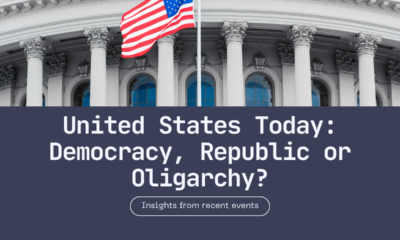



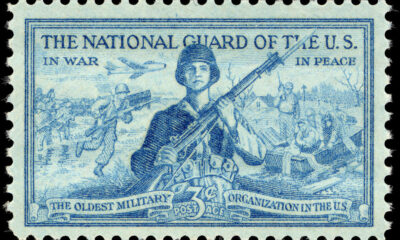

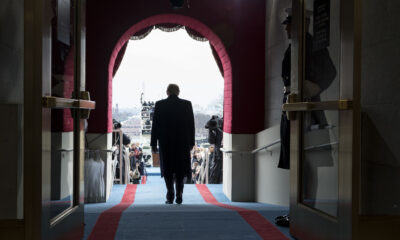

Olivia Bryant liked this on Facebook.
Michael Alan Kline Sr liked this on Facebook.
“What sets the police apart from and above the citizens who pay their salaries?”
Training.
Not good enough. The Framers of the Constitution never meant to create a separate “professional” ruling cadre. Which is what you would turn the police into, if you follow the logic of those who would restrict firearms ownership to active-duty LEO’s and military.
“Which is what you would turn the police into, if you follow the logic of those who would restrict firearms ownership to active-duty LEO’s and military.”
Who has advocated such far-reaching restrictions? Who has suggested that no one other than the military and LEOs should be able to own a shotgun or hunting rifle? Please point me to one advocate of such a position who is even somewhat mainstream or influential.
Who has advocated such far-reaching restrictions as these? Senator Diane Feinstein (D-CA), for one. “If I could have gotten a measure passed to say, ‘Mr. and Mrs. America, turn in your guns,’ I would have done it. But alas! I did not have the votes!” Or words to that effect.
Sarah Brady, for another. “We have to get rid of the guns.” And: “I don’t believe gun owners have rights.”
Besides which: I am too accustomed to hypocrisy to accept at face value the incrementalistic platitudes of most gun-control advocates. Instead I go right to the logical endgame. I report what they really want. They dare not say it, but they never contradict it, either. At least, not reliably.
Theresa Brooks liked this on Facebook.
[…] control has always been about people control. The Framers of the Constitution understood that. Too few judges and […]
[…] that gun control is a very European thing to do, and gun rights are an American idea. CNAV showed here that gun rights are one thing that makes us American. (Sadly, we’ve been forgetting that in the […]